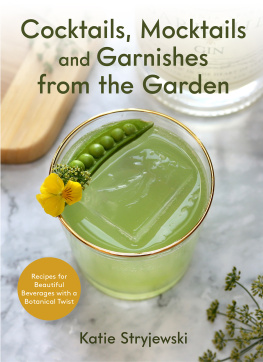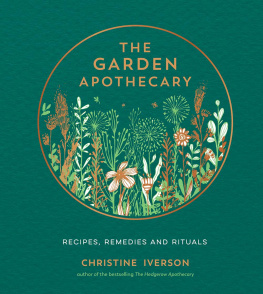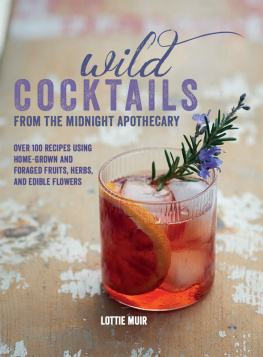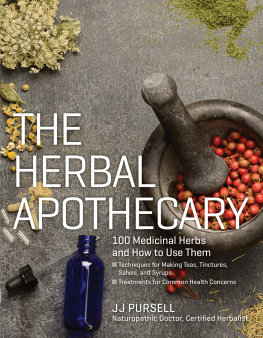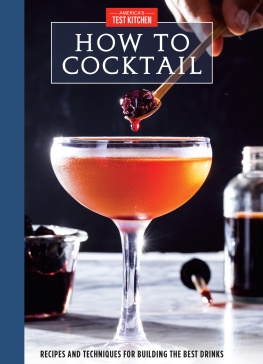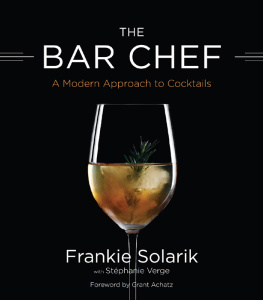Apothecary Cocktails
RESTORATIVE DRINKS
from YESTERDAY and TODAY

WARREN BOBROW


Apothecary Cocktails is crafted like one of Warrens libations, creative, beautiful, well balanced, and delicious! A staple for any home bar.
GABLE ERENZO, distiller, brand ambassador, Tuthilltown Spirits (Gardiner, NY)
Theres no doubt about the restorative power of a good cocktail after a bad day. Warren Bobrow builds on this motif, serving up a collection of creative drink recipes alongside historical anecdotes and lush, thirst-inducing photographs.
KARA NEWMAN, author, Cocktails for a Crowd
Warren gets to the heart of the fact that drinking was once as much about being restorative and curative as it was for pleasure. The happy coincidence of the two is wonderfully illustrated here.
ROCKY YEH, cocktail visionary, bartender, Vessel (Seattle, WA)
In Apothecary Cocktails, Warren gives us all permission to live and drink well. Stock full of recipes dripping in delicious bitters and healthful herbs, take the plunge with this book and learn how Warrens enticing cocktails will keep you healthier and happier.
SUZANNE LONG, mixologist, Mixanthrope.com
Warren Bobrow delivers to the reader what many cocktail books promise but fail to delivera clear, uncomplicated path to satisfying drinks based on a bit of the history behind the libation.
EDWARD HAMILTON, creator of the Ministry of Rum blog and author of Rums of the Eastern Caribbean and The Complete Guide to Rum
Dedication
To my wife, Julie, who suggested I become a writer in the First place.
2013 Fair Winds Press
Text 2013 Warren M. Babrow
Photography 2013 Fair Winds Press
First published in the USA in 2013 by
Fair Winds Press, a member of
Quayside Publishing Group
100 Cummings Center
Suite 406-L
Beverly, MA 01915-6101
www.fairwindspress.com
Visit www.QuarrySPOON.com and help us celebrate food and culture one spoonful at a time!
All rights reserved. No part of this book may be reproduced or utilized, in any form or by any means, electronic or mechanical, without prior permission in writing from the publisher.
Digital edition published in 2013 eISBN: 978-1-61058-859-1
Digital Edition: 978-1-61058-859-1
Softcover Edition: 978-1-59233-548-8
Library of Congress Cataloging-in-Publication Data available
Cover and book design by Kathie Alexander
Photography by Glenn Scott Photography
The information in this book is for educational purposes only. It is not intended to replace the advice of a physician or medical practitioner. Please see your health care provider before beginning any new health program.
Foreword
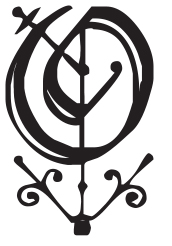
nce you meet Warren Bobrow, it doesnt take long to realize that hes been bitten by the bug. In 2009, after spending more than twenty years in corporate America, Warren tossed aside a successful career in the banking industry to pursue his passion for the culinary and cocktail world. Over the past three years, Warren has not only redefined himself as an individual, but also he has explored the world of food and drink from a unique perspective; he has shared his journey with his readers in hundreds of articles published in magazines, encyclopedias, and blogs globally. In Apothecary Cocktails: Restorative Drinks from Yesterday and Today, Warren will both inform and entertain you as he negotiates the history of pre-Prohibition cocktails, bitters, tinctures, and tonics from the apothecaries of days gone by.
When I first met Warren in 2011, I was impressed and delighted by his passion for writing, eating, and drinking. Apothecary Cocktails: Restorative Drinks from Yesterday and Today is destined to become a classic for both seasoned and aspiring bartenders and cocktail enthusiasts around the world.
A hearty toast to Warren and Apothecary Cocktails!
Paul G. Tuennerman
(a.k.a. Mr. Cocktail) Co-Owner, Tales of the Cocktail
Contents
From Old-Time Apothecaries to Contemporary Cocktails: A Brief History of Herbal Healing

From Old-Time Apothecaries to Contemporary Cocktails: A Brief History of Herbal Healing


pothecary cocktails have a rich and intriguing history. As their name suggests, these curative cocktails were originally created in early pharmacies or apothecaries, from ancient times until the beginning of the twentieth century. Ive been interested in the history of patent medicines and apothecaries for as long as I can remember. My grandfather was in the patent pharmaceutical business and, even as a child, the world of patent medicines and quack cures were a part of my day-to-day life. In fact, they were impossible to ignore, because I was fed a teaspoon of spirit-based vitamin tonic along with my chewable vitamins and orange juice at breakfast every day. (I think I turned out pretty well, despite having consumed a daily teaspoon of 50-proof spirits first thing in the morning during my tender years.) Being exposed to these combinations of herbs and spices with alcohol early in lifea little too early, arguablyled to my interests in mixology and the apothecary cocktail movement as an adult.
Like most apothecaries of yesteryear, Im not a doctor, but I am interested in healing through natural, herb-based methods. Before the advent of modern medicine, ordinary people had minimal access to qualified doctors, so early pharmacists acted as local medical professionals to the sick in their communities. Because doctors didnt manufacture medicines themselves, it fell to the pharmacist to prescribe, create, and administer healing potions to their patients (usually in very small, carefully measured amounts). They manufactured tinctures, bitters, elixirs, and tonics for all kinds of ailments; using primitive ingredients, some of these recipes were old as spoken history. These healing, homemade potions may have been laced with copious amounts of distilled alcohol, then stirred or shaken before being poured directly into a glass and given to the patient on the spot as a prescriptive. The earliest known pharmacist-prepared treatments called for fragile herbs, flowers, fruits, and even vegetablesalong with the aforementioned substantial quantities of alcohol, which prevented them from rotting, and preserved their healing qualities. Most of these botanicals would have been grown right in the apothecaries own kitchen gardens to ensure freshness and potency. Each formulary would have been custom made, depending on the individual patients complaint, and was hand-prepared from start to finish.


